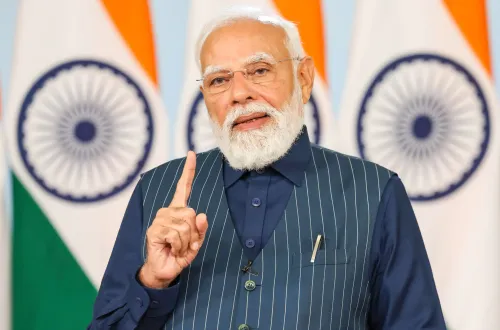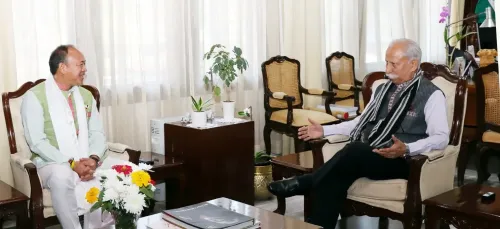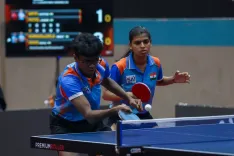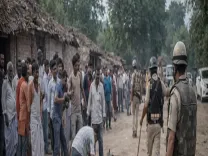Meghalaya CM Sangma Defends Legacy of PA Sangma Against Biren Singh's Remarks
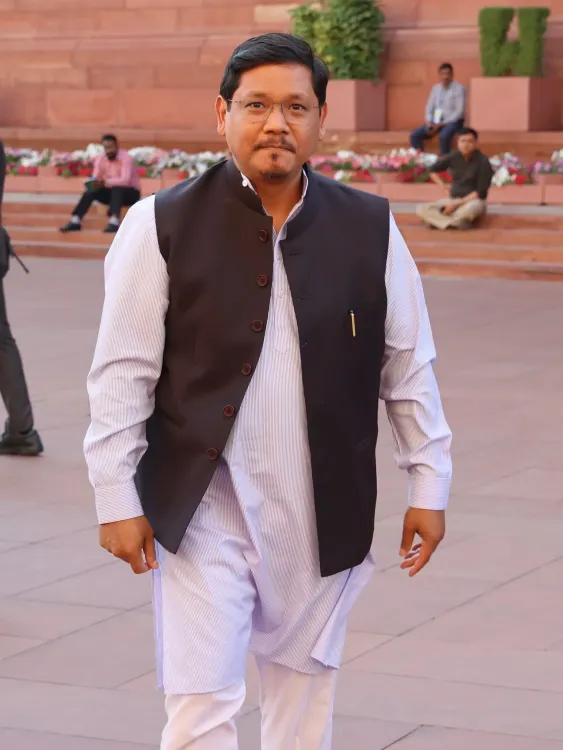
Synopsis
Key Takeaways
- Conrad K. Sangma defends P.A. Sangma's legacy.
- Focus on restoring peace in Manipur.
- Biren Singh's comments on ethnic division criticized.
- NPP holds significant political power in NE.
- President's Rule imposed in Manipur amid ethnic tensions.
Shillong/Imphal, March 31 (NationPress) - The Chief Minister of Meghalaya, Conrad K. Sangma, emphasized on Monday that the late P.A. Sangma, who served as a former Union Minister and Lok Sabha Speaker, was a steadfast champion for the rights of the northeast (NE) people. He noted that P.A. Sangma was deeply committed to advocating for various issues affecting the region.
In response to a post by former Manipur Chief Minister and senior BJP leader N. Biren Singh on X earlier that day, Conrad K. Sangma expressed regret that Biren Singh had mentioned the name of (L) P. A. Sangma ji.
Conrad stated, “Sangma ji consistently fought for the northeast population. His advocacy for the rights and issues of the NE people was unwavering. Currently, our collective efforts should focus on restoring peace and harmony in Manipur instead of engaging in political gamesmanship.”
He further added, “It is essential for all of us to collaborate. I urge everyone to contribute to the betterment of the Manipur populace, which is undoubtedly what (L) P.A. Sangma ji would have wished for.”
Conrad Sangma, the son of P.A. Sangma and the president of the National People's Party (NPP), leads the NPP, which plays a significant role in the Meghalaya Democratic Alliance (MDA)-led government.
The NPP holds seats in Manipur and several other northeastern states.
Biren Singh had claimed in his post that P.A. Sangma had supported the perilous notion of fragmenting the northeast into smaller states based on ethnic identities, and that similar efforts are currently being made to meddle in Manipur’s internal matters to create instability.
In his post on X, Singh stated, “The late P.A. Sangma once endorsed the divisive concept of splitting the northeast into smaller states along ethnic lines, a dangerous notion that jeopardizes our nation's unity. Currently, we are witnessing attempts to interfere in Manipur's internal affairs, aimed at destabilizing the state.”
He added, “Manipur’s context is distinct. This state houses several small, vulnerable indigenous communities, necessitating the enforcement of the Inner Line Permit (ILP) to safeguard them.”
The ex-Chief Minister tagged the Meghalaya Chief Minister in his post, stating, “After years of efforts to protect indigenous communities, we have started to see tangible progress, such as the implementation of the ILP, a hard-earned success.”
“Conrad K. Sangma needs to recognize that the violence was not spontaneous; it was incited by those who feel threatened and insecure due to this kind of advancement.”
“Is Mr. Conrad Sangma aware that Manipur has already begun border fencing? That the Free Movement Regime (FMR) is now being strictly monitored? Has he noticed the alarming increase in unrecognized villages within Manipur’s borders?”
The NPP had withdrawn its support from the BJP-led government in Manipur on November 17 last year, asserting that the Biren Singh administration had “completely failed to address the crisis and restore normalcy” in the violence-torn state.
The NPP had seven MLAs in the 60-member Manipur Assembly. However, the NPP's withdrawal did not impact the Chief Minister Biren Singh-led government, as the BJP commands the support of 37 MLAs in the 60-member Assembly and is also backed by five MLAs from the Naga People's Front (NPF) and three Independents.
NPP MLA N. Kayisii, who was also the president of the party's Manipur unit, passed away on January 18 after a prolonged illness, leaving six party legislators in the House at present.
President's Rule was declared in Manipur on February 13, just four days after Chief Minister N. Biren Singh, who was leading a BJP-led government for the second term, resigned on February 9, following over 23 months of ethnic violence.




